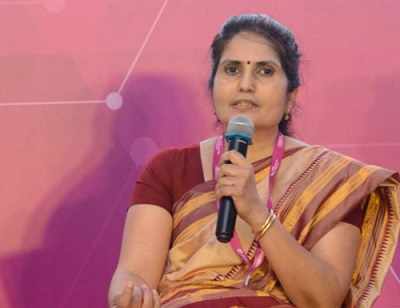 For every manufacturing firm today, gathering and using data has become imperative to achieve business growth. Steam engineering firm Forbes Marshall has also realised data’s potential and is using it to make faster business decisions.
For every manufacturing firm today, gathering and using data has become imperative to achieve business growth. Steam engineering firm Forbes Marshall has also realised data’s potential and is using it to make faster business decisions.The company manufactures products and services that help industries to save energy, improve process quality and throughput, and run a clean and safe factory. With six manufacturing facilities in India, UK and Singapore, Forbes Marshall has over 1,500 employees.
To achieve its aim of becoming a leader in energy and process automation solutions, the manufacturer is leveraging technology in various areas.
Forbes Marshall uses a variety of digital tools and platforms, and these are a mix of those built in-house and some from third-party suppliers/service providers. Beena Nayar, CIO, Forbes Marshall has a team of 30 IT professionals.
Forbes Marshall uses BI tools for data analytics which helps in making critical business decisions – such as to identify bottlenecks in the supply chain, planning and enhancing sales, amongst others.
The applications have been built based on lean manufacturing principles to reduce waste and enhance productivity.
“This is integrated with test rigs for extracting test data directly from the SCADA systems and for enabling material flow from one operation to another during production. This integrates seamlessly with ERP and ASCP during the entire flow,” Beena Nayar, CIO, Forbes Marshall.
This has reduced waste, like time for replenishing material for the job, Kanban bins, time taken for responding to issues because of ANDONs. This also ensures a smooth flow of material from one stage to another and also recording the issues, reworks, rejections which can be used for further improvements in the value streams.
The company’s IT landscape comprises Oracle ERP and ASCP, as well as bespoke applications which have been customized for enabling digitization and automation.
All these are built and tuned for enhancing productivity and efficiency of members and also for enabling and enhancing business. “For example, the mobility solutions we have built automates transactions and also enables traceability of material movement end-to-end,” said Nayar.
Nayar is a believer of keeping data centers as thin as possible and moving most of Forbes Marshall’s apps and data on the cloud.
“We started with building new applications on the cloud and then started moving older applications onto the cloud. Over the years we have been moving older applications as and when the server on which they were running on-prem required a refresh,” Nayar maintained.
As of now most of the applications have been moved to the cloud.
“When we were planning for a refresh for our ERP servers, we evaluated a few options. Given we were already using Oracle because of ERP and ASCP, we realized running these applications on Oracle Cloud Infrastructure (OCI) was the best option, even from a future upgrade and capability enhancement perspective,” she added.
Using OCI, substantial improvement in reporting and analytics have been observed–especially with respect to long running and time consuming reports/procedures– an average 30% improvement has been observed.
“Further, for IT, the time required for cloning instances and time taken for backup have reduced by 50%,” she said.
Additionally, the company is using RPA for automating some mundane transactions. Nayar plans to continue this journey in combination with OCR and AI/ML to automate and also to enable faster, better decision making. “We are also working on AR/VR projects for enabling our customers and field engineers.”



